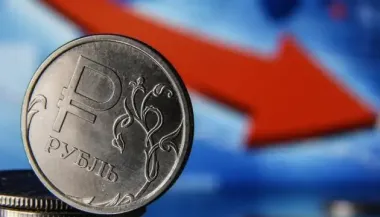Russia raises taxes to continue war against Ukraine

Russia to raise taxes to support defense spending
Russia's illegitimate president, Vladimir Putin, has dismissed suggestions that the war is destroying Russia's economy, but the budget deficit is growing due to increased spending, while oil and gas revenues are shrinking under the pressure of Western sanctions.
Long-awaited talks between Putin and his American counterpart Donald Trump in Alaska last week failed to produce a ceasefire, giving Moscow, which would prefer to move immediately to a peaceful settlement, a strategic boost but also a cost headache.
The Russian economy is increasingly feeling the effects of the protracted war against Ukraine. Thus, in 2025 the budget deficit reached 4.9 trillion rubles (about $61 billion), one of the largest indicators in recent years. The reasons are the decline in oil and gas revenues due to Western sanctions and the rapid growth of military spending.
It is noted that the Russian Federation's total defense and national security spending in 2025 amounted to 17 trillion rubles, the highest figure since the Cold War, and accounts for 41% of total spending. This makes the defense sector a major driver of economic growth against the backdrop of declining civilian production.
Putin said in June that Russia plans to cut military spending, but for now, officials still expect it to increase.
The 2025 budget, to be presented in September, projects defense and security spending at 8% of GDP, but a Russian government source said the actual figure is slightly higher.
According to him, there will be no cuts in defense spending in 2026, but cuts are possible in 2027 if hostilities cease as other spending areas compete for resources.
Even with a ceasefire, shells and drones will still need to be produced, but on a somewhat smaller scale, the publication's interlocutor said, adding that there will be no return to the level that existed before the "special military operation."
The head of the Federation Council's budget committee, Anatoly Artamonov, is proposing to cut spending on non-priority areas by 2 trillion rubles annually by 2028. The first to be hit are social sectors: healthcare, education, and other civilian programs. Their share of spending is already decreasing.
A government source told Reuters that tax increases were inevitable.
Otherwise, we simply won't be able to make ends meet, even with defense spending cuts. Oil and gas revenues are falling, and the economy can't fully compensate for this.
Putin says the financial system is “stable,” but analysts predict low economic growth and a continued gap between revenues and expenditures. A government source estimates that this year’s deficit will be about 5 trillion rubles, or 2.5% of GDP. And if current trends continue, the deficit could grow to 8 trillion rubles in the coming years.










